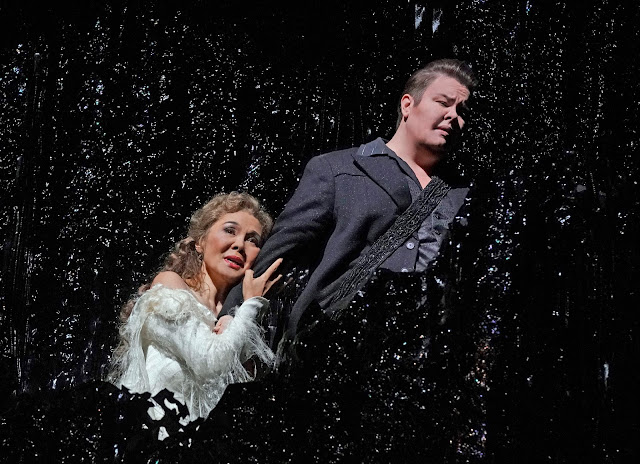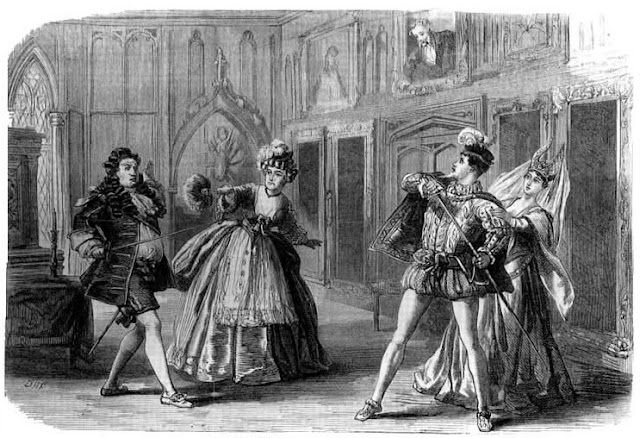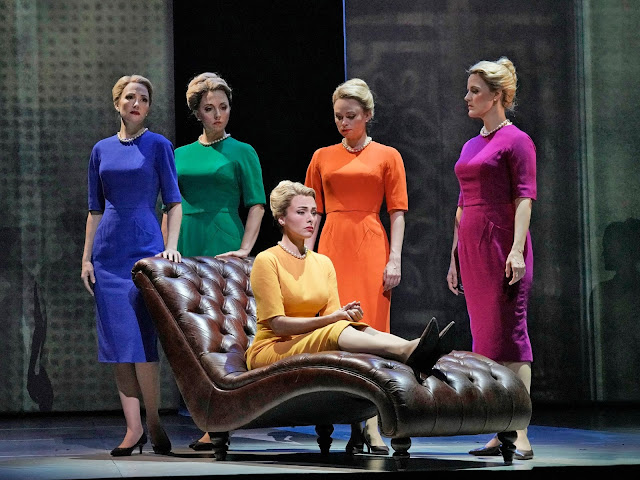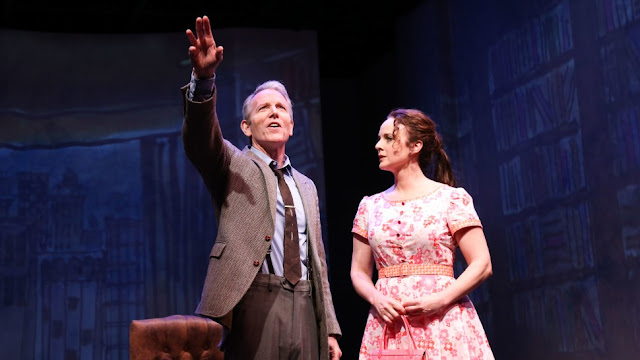Review: Orfeo ed Euridice

In the 1760s, teetering on the edge between the Baroque and Classical eras, Christoph Willibald Gluck felt that opera had become too self-indulgent. Too much time was wasted on giving the singers all the best florid lines to sing, and text was repeated so often it became meaningless. Operas in this time could run near four hours long and still convey very little story at all. Gluck worked with librettist Ranieri de' Calzabigi to come up with a list of reforms to bring opera back to basics, where the music focuses on conveying the drama as simply and directly as possible. Orfeo ed Euridice clocks in at around ninety minutes. A nice little chestnut of an opera that's over and done with without an intermission. Hei-Kyung Hong and Jamie Barton in Orfeo ed Euridice Photo by Ken Howard Today the Metropolitan Opera opened a revival of Mark Morris' 2007 production of Orfeo ed Euridice , and at first it seems the director has taken Gluck's reforms to their logical ...





